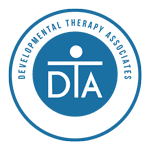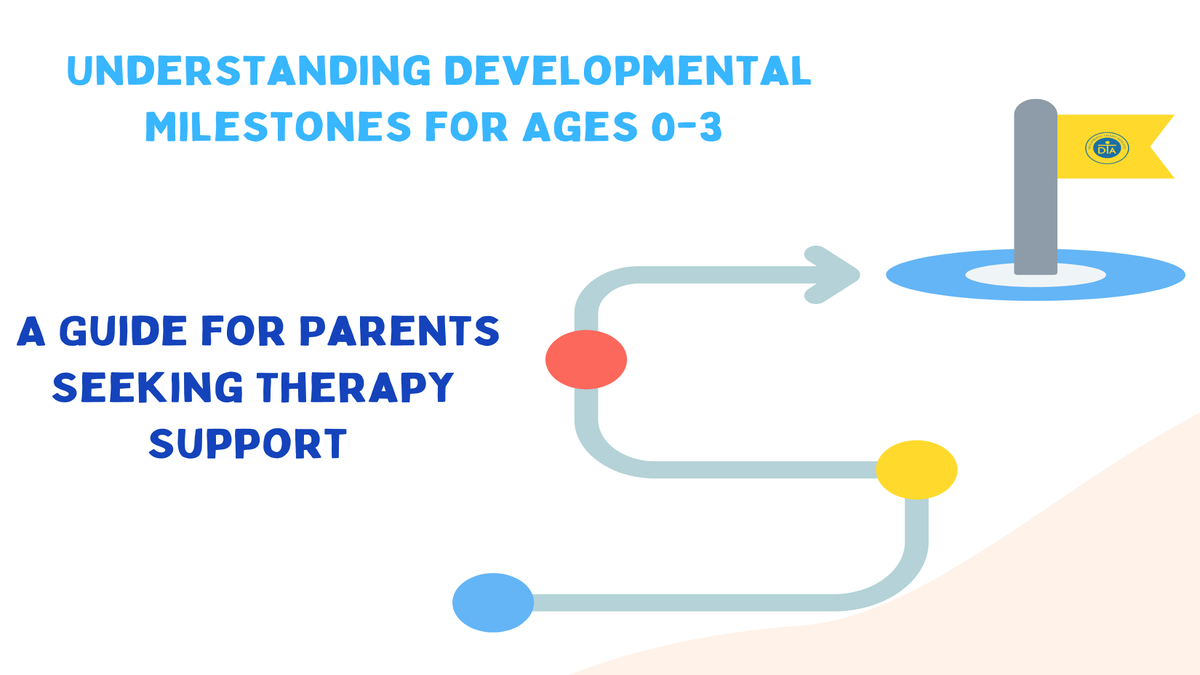Developmental Milestones by Age
Birth to 12 Months
This period is all about discovery as your baby starts to explore their body and environment.
Motor Skills:
- Rolling over (4-6 mo)
- Sitting up independently (6-8 mo)
- Crawling (6-10 mo)
- Pulling to stand (9-12 mo)
Fine motor skills:
- Grasping toys
- Transferring objects between hands
- Beginning to use a pincer grasp by 9-12 mo
Social and Emotional Development:
- Smiling in response to interaction (6-8 wk)
- Recognizing familiar faces and showing attachment to caregivers
Language Development:
- Cooing and babbling (2-6 mo)
- Responding to their name (6-9 mo)
- Saying simple words like “mama” or “dada” around 9-12 mo
12 to 24 Months (1-2 Years)
Toddlers begin to develop independence and refine their motor and communication skills.
Motor Skills:
- Walking independently (12-18 mo)
- Running by 18-24 mo
- Scribbling with crayons
- Stacking blocks
- Using a spoon
Social and Emotional Development:
- Engaging in simple pretend play (e.g., feeding a doll)
- Showing interest in other children & playing alongside them (parallel play)
Language Development:
- Saying 10-20 words by 18 mo
- Combining two-word phrases by 24 mo
- Following simple instructions like “Pick up the toy”
24 to 36 Months (2-3 Years)
This stage marks significant strides in problem-solving, language, and social interaction.
Motor Skills:
- Climbing stairs with alternating feet
- Drawing simple shapes
- Turning pages in a book
Social and Emotional Development:
- Engaging in cooperative play with peers
- Expressing emotions more clearly and beginning to navigate sharing
Language Development:
- Speaking in 3-4 word sentences
- Expanding vocabulary to 200-1,000 words by age 3
When To Seek Therapy Support
While every child develops at their own pace, some delays or challenges may indicate the need for early intervention. Here are some signs to watch for:
Motor Delays:
Difficulty meeting milestones like sitting, crawling, or walking.
Trouble with fine motor skills, such as grasping objects or using utensils.
Speech and Language Delays:
Limited babbling or difficulty saying simple words by 12-15 months.
Challenges in forming sentences or following instructions by age 2.
Social and Emotional Concerns:
Avoiding eye contact or not engaging with caregivers.
Difficulty playing with others or excessive tantrums that interfere with daily life.
If you notice any of these signs, consider reaching out to a pediatrician or therapy clinic for an evaluation. Early intervention can make a significant difference in helping your child catch up and thrive.
Our Recommendations for Parents
1. Monitor Your Child’s Progress: Keep track of developmental milestones and celebrate your child’s achievements, no matter how small.
2. Ask for Help Early: If you’re concerned, don’t wait. Early therapy services, such as physical, occupational, or speech therapy, can support your child’s growth and give them the tools they need to succeed.
3. Create a Supportive Environment: Encourage your child’s development through age-appropriate activities like reading together, playing games, and providing sensory experiences like finger painting or water play.
4. Partner with Professionals: Our team at Developmental Therapy Associates specializes in working with young children and their families to address a wide range of developmental needs. We’ll provide a customized treatment plan to help your child reach their full potential.
If you have concerns about your child’s development or want to learn more about therapy options, we’re here to help. Contact DTA today to schedule an evaluation with one of our skilled therapists. Together, we can support your child’s journey toward reaching their milestones—and beyond.

